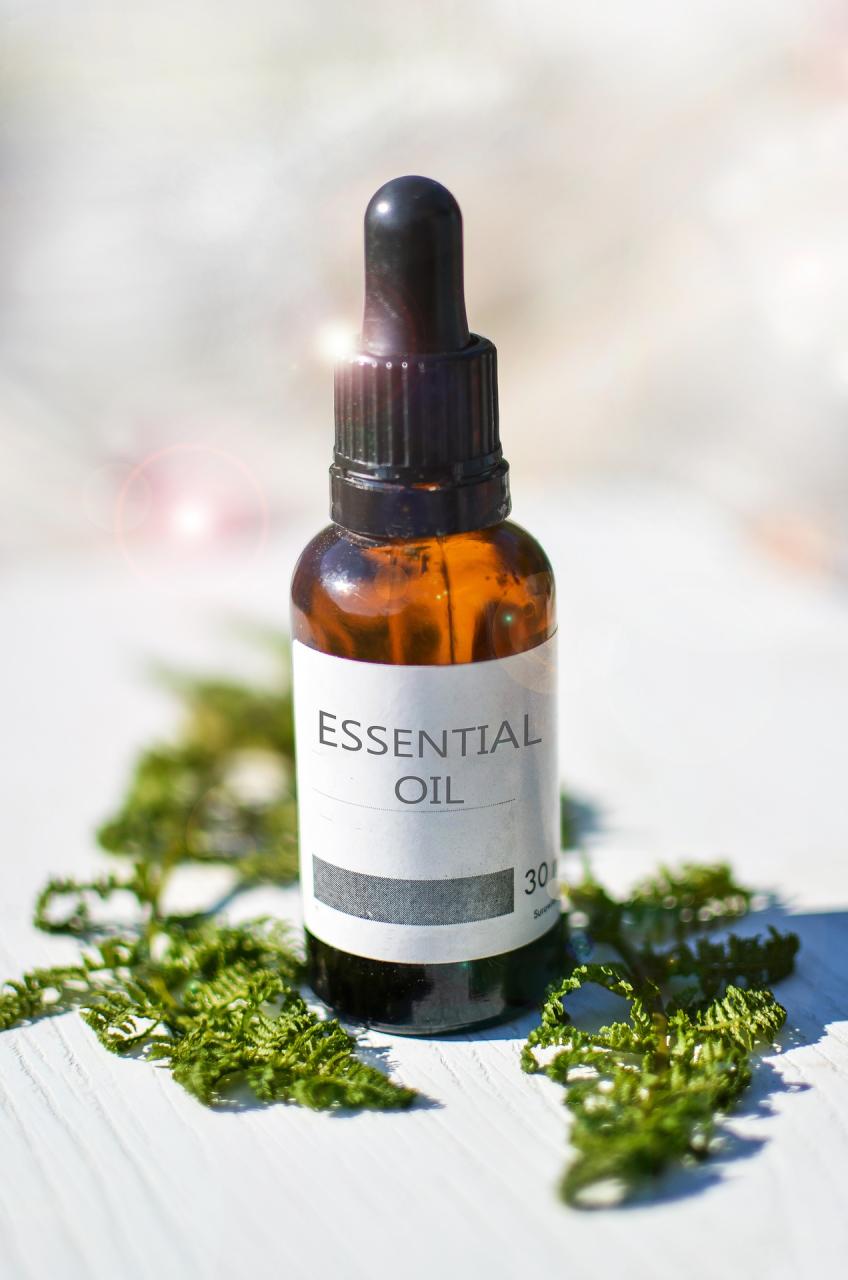How to Use Lemongrass Properly
If you’re cooking with the lemon-scented grass, you can use it in powder form, fresh, or dried. It is commonly used to flavor sweet and savory dishes as well as add a zesty kick to traditional teas. When used in food, it’s most popularly used as a fresh herb sliced diagonally and cooked near the end of the dish (not unlike spring onions). Lemongrass-flavored teas usually use dried leaves which look like thin, green, or off-yellow straws varying in length. If you’re using the essential oil in your drinks, make sure to read the warning label. Follow the directions and remember to start with only a couple of drops first.
If you’re using the essential oil topically, there are a few things you should know. Firstly, never apply any essential oil directly onto your skin. Because of its potency, the risk of an allergic reaction is very high. Always dilute the essential oil with a carrier oil — but not oils such as shortening, melted butter, or canola. Instead, use carrier oils. Carrier oils are oils which dilute essential oils and carry them to your skin, such as jojoba oil, coconut oil, or almond oil (just to name a few).
How you should mix them is up to personal preference and desired dilution. But generally, if you want to test out an essential oil, dilute 15 drops of essential oil per 6 teaspoons of carrier oil. This mixture gives you 2.5 percent dilution. Up the number of drops to increase the dilution percentage. Once you have diluted it, place a small amount on the inside of your wrist. Cover with a bandage and check back after 24 hours. If nothing occurs, feel free to use your mixture. If your skin becomes irritated, discontinue use.
Who Should Avoid Using Lemongrass Essential Oil?
Before using lemongrass essential oil (or any essential oils for that matter), it is essential to do your research. Even before you conduct a patch test on your skin, look at both the essential oil and the carrier oil. If you are allergic to a particular nut, for example, be cautious and do not use carrier oil derived from that nut tree. That includes sweet almond oil, apricot kernel oil, and argan oil.
There is no specific research conducted on the effects of essential oils on a developing baby. But a mother should always be careful of what she eats, smells, and uses on her skin, as it could affect her growing child. Several sources state that both expectant and nursing mothers should avoid the essential oil altogether. That’s because lemongrass is believed to trigger menstrual flow. If you’re pregnant, this could potentially lead to a miscarriage. Secondly, consuming lemongrass when nursing could trigger a reaction in your child. Although lemongrass labels say it’s for consumption, use caution or simply do not use it at all when pregnant or nursing.
Possible Side Effects
Always consult your family physician before using any essential oil on a daily basis. Only trained medical professionals can warn you of all side effects before use. As mentioned above, pregnant and nursing women should avoid the use of lemongrass products. Besides that, the most common side effect of using lemongrass oil is allergic reactions. That is why it is always important to test a small patch of skin before using any essential oil on a regular basis. Also, be aware of the selected carrier oil. Test your carrier oil separately on a patch of skin to find out if you are allergic to that oil as well.
There are several other common side effects. That includes increased amylase, an enzyme created in the pancreas and salivary glands which helps starch digestion. It also increases bilirubin, a compound produced by the breakdown of hemoglobin in the blood cells. If inhaled, consumers could also develop alveolitis, which is when the air sacs in the lungs become inflamed.
What Is Lemongrass Used For?
While you may use lemongrass to flavor food and drinks, it is also has a myriad of health benefits. We’ll go through just a handful of them.
Anti-fungal and anti-inflammatory
Lemongrass contains three inflammation-fighting compounds: chlorogenic acid, isoorientin, and swertiajaponin. Therefore, the tea, for example, helps fight against inflammation, which is a factor in many health conditions.
Lemongrass is also helpful in preventing and treating fungal infections. It is a crucial ingredient in many antifungal creams. Athlete’s foot (a contagious fungal infection affecting the feet, including the toenails) can also be remedied using lemongrass essential oil. Massage the essential oil directly to the affected area. According to studies, it lowers spot production and consequently reduces the spread of the fungus.
Pain reliever
There are studies which support the use of lemongrass tea as a pain reliever. Years ago, a study conducted a test which researched the effectiveness of lemongrass tea on rats. The conclusion was that the lemongrass had pain-relieving properties which supported the drink as a “sedative” in folk medicine.Secondly, lemongrass reportedly has the same pain-relieving properties for menstrual cramps. Although there is no research to support this, if we assume lemongrass is useful for general pain relief then it also makes sense that it would work the same with menstrual pains. However, there is scientific research proving lemongrass is an effective way to reduce body heat. Therefore, women suffering from hot flashes associated with their menstrual cycle would benefit from this herb.
Fever and migraine reducer
West Indians and those living in the East used lemongrass teas as fever reducers. This tea mixture was called “fever grass tea” because of its anti-inflammatory properties. Fevers, as well as colds and coughs, are remedied using lemongrass (or fever grass) tea.If you have a headache or suffer from migraines, lemongrass may also be able to reduce your symptoms. Should your migraines bring along emotional symptoms including anxiety or depression, it is known to help ease these symptoms too. That is mostly thanks to its zesty, uplifting scent which also keeps us more alert and awake.
Good for skin and hair health
Lemongrass is said to be a good source of Vitamin A, Vitamin C, and improves blood circulation. Both of these vitamins are essential for silky hair. Improved blood circulation clears skin and treats common issues including pimple breakouts and eczema.
A 2015 study was conducted to measure the effectiveness of lemongrass against dandruff. Subjects used a special tonic twice a day mixed with different dilutions of lemongrass oil. The test subjects noticed a substantial change after 7 and 14 days of use. The group using 10 percent lemongrass dilution saw a 75 percent drop in dandruff levels.


